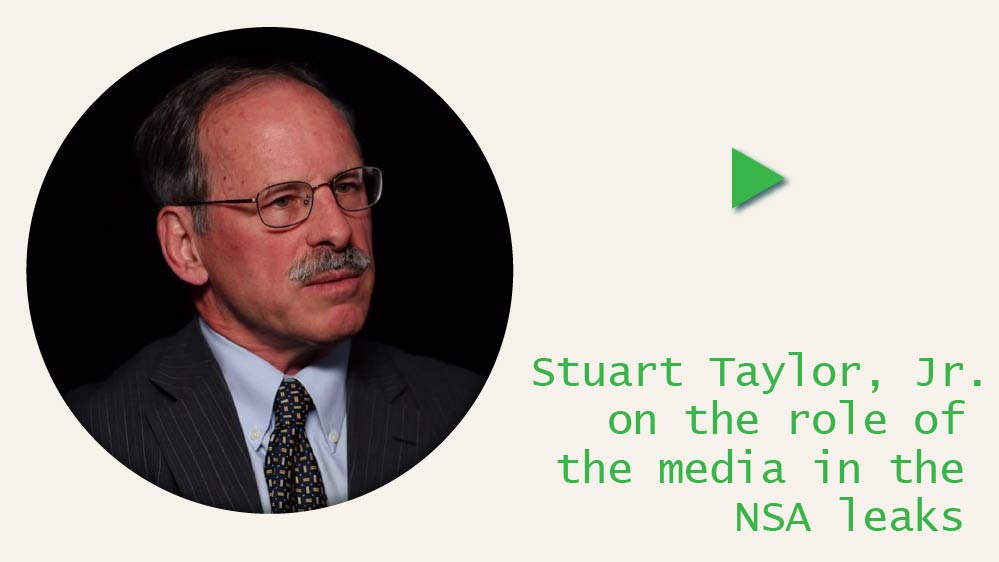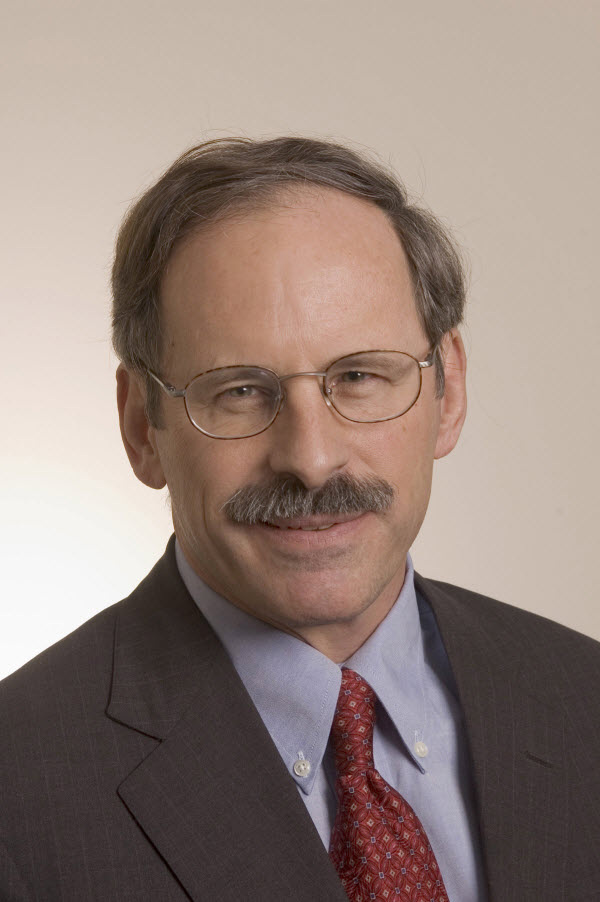Jaffer has long contended that PRISM is,
in its essence, a violation of the Fourth Amendment as well as
the First Amendment right to freedom of association. He was the
lead attorney for a group of ACLU clients — lawyers, journalists,
and human rights advocates — in a challenge to Section 702 that
the Supreme Court rejected, in a familiar 5-to-4 split, in
February 2013. That was, of course, pre-Snowden. But the leaks
have shown no sign of nudging the judiciary toward anything
like a consensus. Quite the contrary. In December alone, a U.S.
district judge in the District of Columbia resoundingly
declared the phone records program unconstitutional, and 11
days later another federal judge, in Manhattan, just as
forcefully upheld the program.
That same month, President Obama — a
chief executive who is highly deliberative by nature and
trained in constitutional law — received a report from a panel of
five former government officials recommending new or tightened
restrictions on NSA practices.
A number of those proposals were
reflected in Obama's speech at the Justice Department on
January 17. He walked a fine line between responding to the
global outcry and, as he clearly saw it, protecting the NSA's
ability to protect America. Among the measures he announced was
an immediate order for the NSA to limit its surveillance of
phone records to connections that were two degrees of
separation (or "hops") from a known or suspected terrorist,
rather than the three degrees that had been permissible before.
The president also called on the executive branch and,
ultimately, Congress to come up with a plan for warehousing the
data in private hands, with a requirement that counterterrorist
agencies seek access the records on a case-by-case basis.
As Obama made clear, many features of
his plan require review and refinement within the executive
branch. As the designated custodian of these records, the
private sector, too, will have an important role to play, and
not necessarily one it welcomes. The phone companies have been
understandably skittish about helping the government — as many
will see it — pry into the lives of their customers.
 see fact
see fact
And then there is the legislative branch, which was the source of the restrictive laws on intelligence activities in the seventies and the eager partner of the executive branch in undermining those laws during the two pre-Snowden decades.
Many in Congress were quick to spin Obama's decisions and suggestions as consistent with their own. Wyden and two Senate allies, Udall and Martin Heinrich (D-N.M.), issued a joint statement in January saying they were "very pleased that the president announced his intent to end the bulk collection of Americans' phone records," even though the president had made no flat assertion to that effect.
Feinstein and her House counterpart,
Representative Mike Rogers (R-Mich.), said, more accurately,
that they were "pleased the president underscored the
importance of using telephone metadata to rapidly identify
possible terrorist plots," a task that they — like the
NSA — believe requires continuing bulk collection.
Jaffer shared their interpretation of
Obama's overall message — "He tinkered with the margins, but he
seems to have rejected, at least for now, any far-reaching
changes, which means that he has accepted, at least for now,
the proposition that the NSA should be collecting essentially
everything" — though not their reaction to it, because the bulk
collection is the very thing he and other critics want to see
changed.
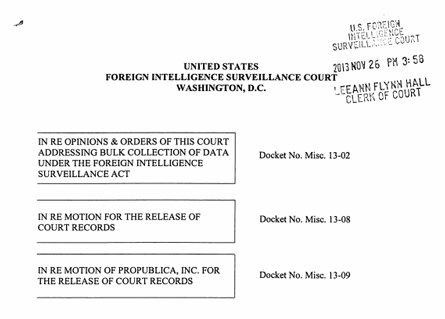
FISC court document on ACLU information requests (detail)
Source: FISC Courts
In March, the House Intelligence
Committee's ranking Republican and Democratic members said that
they were close to agreement on legislation that would end bulk
collection of phone records. Shortly thereafter, President
Obama unveiled a proposal that would do just that. Under the
new plan, the government would no longer systematically collect
and store Americans' calling data, which would instead reside
in the hands of phone companies. Only with permission from a
judge could the government obtain specific, suspect
records.
In at least one area of
reform— more transparency and accountability — there is a
degree of convergence among Wyden, Feinstein, Brenner, Jaffer,
and many others who differ over other aspects of surveillance
and reform.
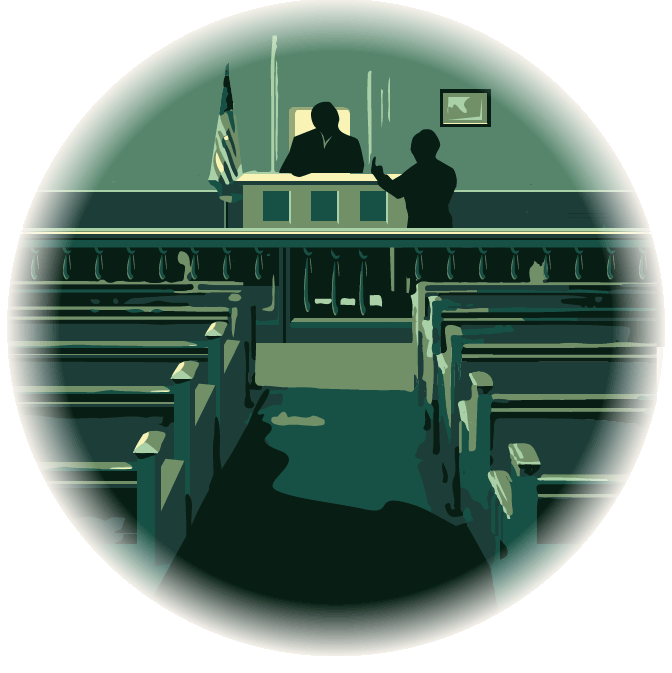 Wyden has long since staked
out his objection to a "secret court" — "the most bizarre court
in America" he calls it — which deliberates behind closed doors
and hears only from government counsel, then issues
interpretations that are classified. "The law should always be
public," he says. "How do Americans make informed judgments
about policies if there's a big gap between the laws that are
written publicly and their secret interpretation?"
Wyden has long since staked
out his objection to a "secret court" — "the most bizarre court
in America" he calls it — which deliberates behind closed doors
and hears only from government counsel, then issues
interpretations that are classified. "The law should always be
public," he says. "How do Americans make informed judgments
about policies if there's a big gap between the laws that are
written publicly and their secret interpretation?"
Brenner agrees that "we have a massive
over-classification problem," adding, "Look, democracies
distrust power and secrecy, and intelligence organizations are
powerful and secret. The only way to square that circle is if
the public understands what the rules are and has reason to
think they are being followed." While he regards Snowden as "a
traitor and a scoundrel," he faults the government for not
having publicly revealed and explained the phone records
program years ago. Had that happened, the American people would
have had "the kind of debate that's happening now" — but in a
less sensationalized and more deliberative atmosphere.
It is ironic that in the wake of the
Snowden leaks the NSA took steps toward precisely that kind of
openness with its decision last December to allow Benjamin
Wittes and Robert Chesney, scholars in the Governance Studies
program at Brookings, to interview five top officials of the
agency at its Fort Meade headquarters. The result, posted
online as a series of Lawfare blogs and podcasts, was an
extraordinarily candid, sometimes eye-popping explanation of
the inner workings of the intelligence-gathering process, the
oversight and enforcement procedures, the relationship with the
private sector, the constant race to keep up with new
technologies, the means by which Snowden was able to pilfer the
material he publicized, and the steps that are being taken to
prevent another such breakdown in security.
But the NSA's decision to allow those
interviews, while voluntary, was almost surely due to the
public pressure it was under. Wyden and his congressional
allies have long urged that the government be required to make
periodic reports on its activities, to the extent permitted by
"protection of sources and methods" and other strong national
security needs. Wyden would also like to see disclosures of the
breadth of information collection and open acknowledgment of
violations of law by the NSA or other agencies. He believes
that such transparency would have a braking effect on excessive
surveillance.
Feinstein and her allies would also
require greater transparency, but not as much as Wyden
advocates, and mostly in the form of codifying in statute the
steps already taken by the NSA. Again, Brenner is thinking
along similar lines. He has written that the dilemma created by
the need to protect both privacy and national security "can be
resolved only through oversight mechanisms that are publicly
understood and trusted — but are not themselves entirely
transparent."
As President Obama recognized in his
January 17 speech, an additional way to ensure more fully
informed decisions by the FISA Court and to raise public
trust in its work would be to encourage or require that it hear
from independent voices rather than from the government alone.
In the speech, Obama called on Congress to establish a panel of
public advocates who would represent privacy interests before
the FISA Court, an idea that he had first floated the previous
summer. As Jaffer says, "When a court is presented with only
one side's arguments, it's inevitable that the court is going
to end up siding with that side more often than it ought
to."
Feinstein and Brenner as well as Jaffer
and Wyden favor some version of such a change, as do Alexander,
Obama, and most other players in the NSA drama; but Wyden and
Jaffer would give the advocates more power than most of the
others would. Feinstein, for example, would leave it to the
judges to decide in which cases to appoint "friends of the
court to provide independent perspectives," while Wyden and
Senate Judiciary Committee Chairman Patrick Leahy (D-Vt.)
prefer a permanent office of "special advocate." The advocate
would have the right to oppose the government in important
cases; to ask to be heard even if uninvited by the court; and
to appeal surveillance court decisions with which the advocate
disagrees. Somewhere in this mixture of proposals there is
surely a compromise that will ensure that independent,
security-cleared lawyers will have the opportunity to expose
the weaknesses in the government's arguments without turning
every case into a legal donnybrook.
Feinstein believes that there is a
meta-problem more vexing and more important than the fate of
any one intelligence program. The biggest challenge, as she
sees it, is using the debate and reform of NSA activities to
begin repairing "the destruction of faith in our government," a
blow to national security and national morale that the Snowden
leaks have exacerbated.
She is surely right about that, and that
makes it all the more important to put the onus on the American
people's representatives in Congress to join the president in
making the tough choices. As Brenner says, "If you have to make
a recorded vote on whether to give this authority to an agency,
or if you're in an agency and have to decide whether you want
the authority, you're asking yourself how you're going to look
when the bomb goes off. And that's a scary position to be in.
That's called having responsibility. And people who've actually
got the responsibility talk and behave differently than people
who don't."
No one has more responsibility than
President Obama himself. While he is not commonly viewed as the
nation's Spymaster-in-Chief, that function does come with his
job. He sees the most highly classified intelligence every
morning. He is in a position to judge its utility over time
and, therefore, to make judgments about "the sources and
methods" by which it is collected. And the buck stops on his
desk if the system fails to anticipate a Pearl Harbor or a
9/11. No doubt that aspect of his job helps explain what seems
to some of his critics a disconnect between his strong civil
libertarian roots and his professorial knowledge of the
Constitution on the one hand, and his essentially protective
posture with regard to NSA surveillance on the other.
Whether the American people and their
representatives in Congress will support the president,
Feinstein, and others who want to maintain much of the status
quo depends on there being more public trust in government than
there is now. The distrust evident in the polls is directed at
both the legislative and executive branches.
In addition, there must be a critical
mass of the public willing to live with not just one permanent
conundrum but two. The first, which is at the heart of the
problem, is the inherent tension between national security and
individual privacy. The second, which is evident in the search
for a solution, is the severe limit on the degree to which
transparency can be reconciled with functions of government
that must be opaque — that is, secret — in order to be
effective.
The challenge is captured in the most
famous sentence that F. Scott Fitzgerald ever wrote, in an
essay three-quarters of a century ago: "The test of a
first-rate intelligence is the ability to hold two opposed
ideas in mind at the same time and still retain the ability to
function." That is also the test of a first-rate intelligence
agency in the service of a robust democracy.
Join the conversation on Twitter using
#BrookingsEssay
or share this on Facebook.
This essay is available as an e-book at Amazon, Barnes and Noble, and eBooks.
We invite you to explore all of the Brookings essays at thebrookingsessay.org
Like other products of
the Institution, The Brookings Essay is intended to contribute
to discussion and stimulate debate on important issues. The
views are solely those of the author.
Graphic Design and Illustration: Marcia Underwood
Web Development: Marcia Underwood and Kevin Hawkins
Videos: Director – George Burroughs;
Director of Photography – Ian McAllister;
Camera Operators – Sareen Hairabedian, Brianne Aiken;
Sound Mixer – Zachary Kulzer
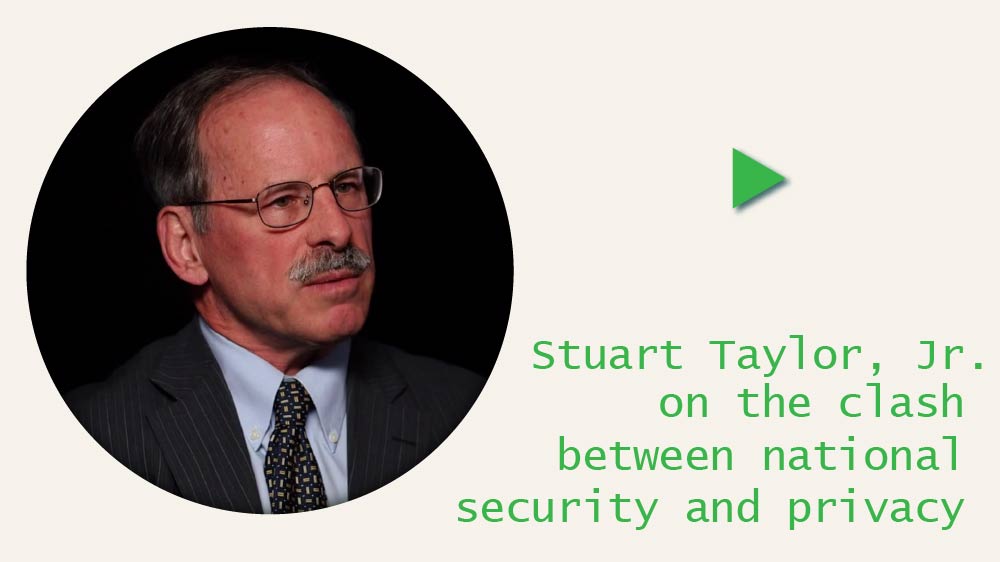
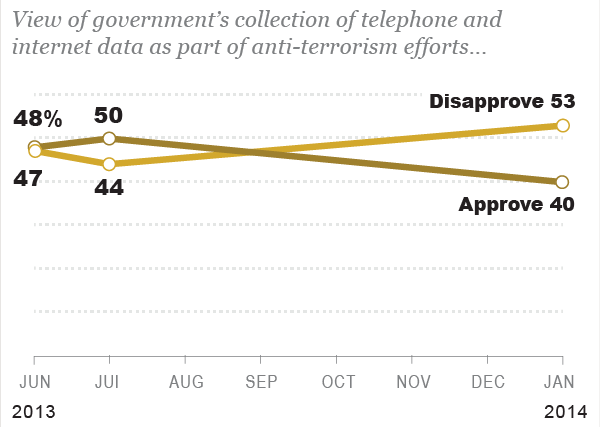
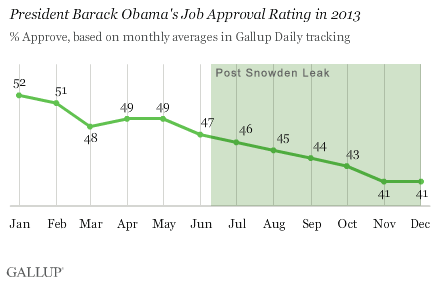
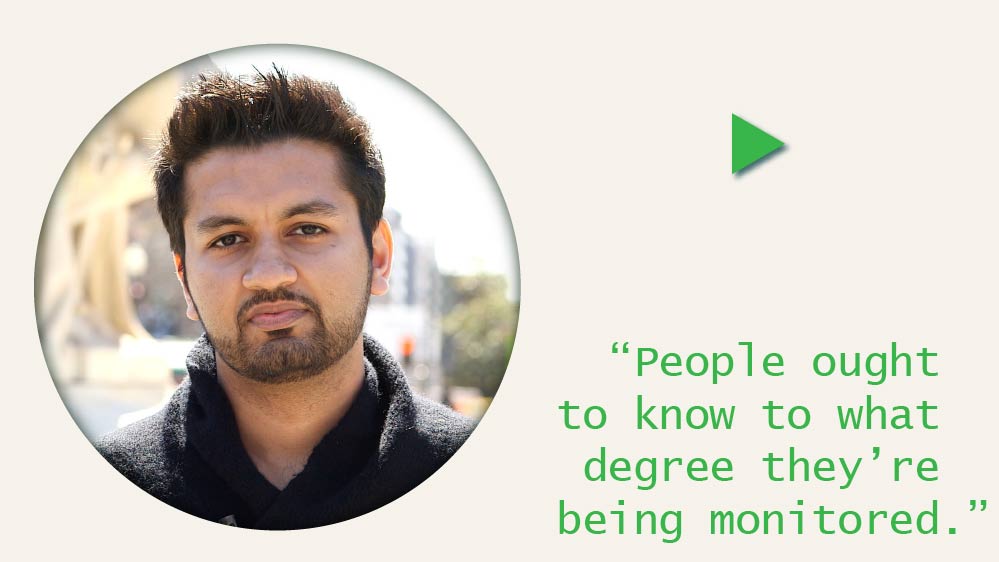


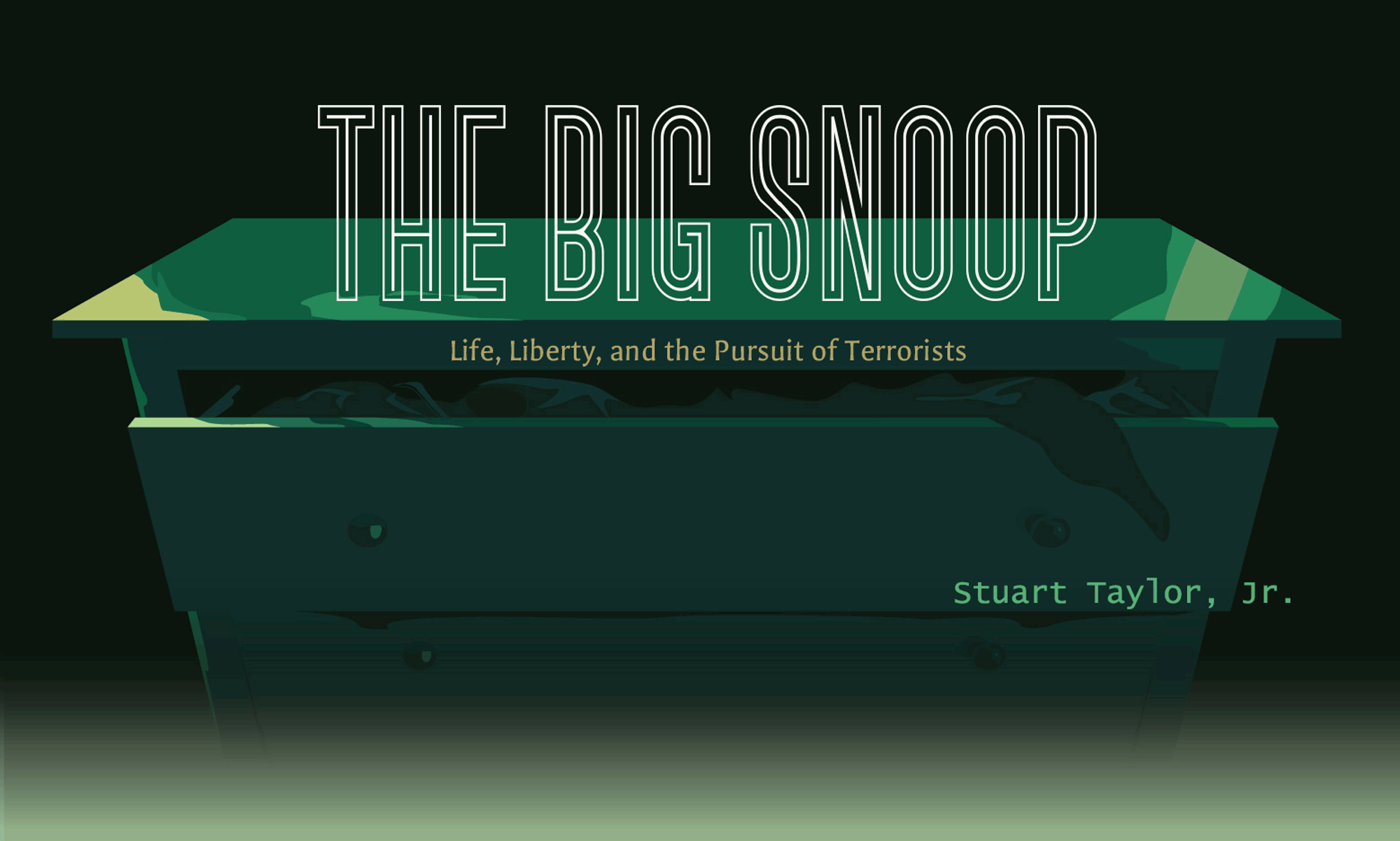


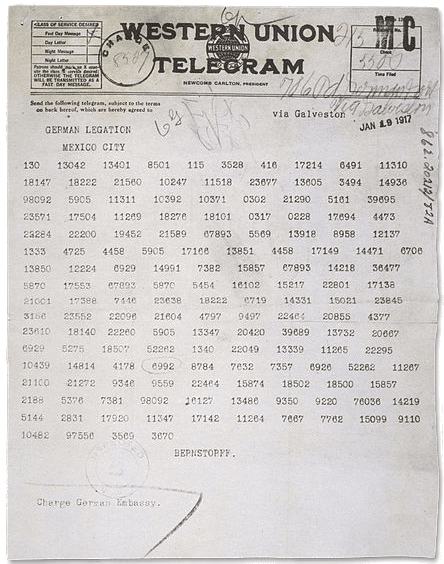
 However, once the war had ended, President Herbert Hoover's secretary of state, Henry Stimson, famously shut down the "Black Chamber," a precursor of the NSA, which had begun intercepting and decoding foreign diplomats' cables in peacetime, too. "Gentlemen," Stimson harrumphed, "don't read each other's mail."
However, once the war had ended, President Herbert Hoover's secretary of state, Henry Stimson, famously shut down the "Black Chamber," a precursor of the NSA, which had begun intercepting and decoding foreign diplomats' cables in peacetime, too. "Gentlemen," Stimson harrumphed, "don't read each other's mail."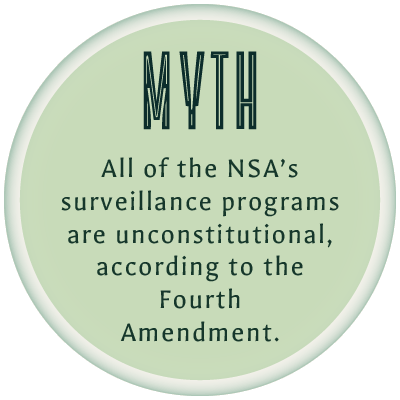
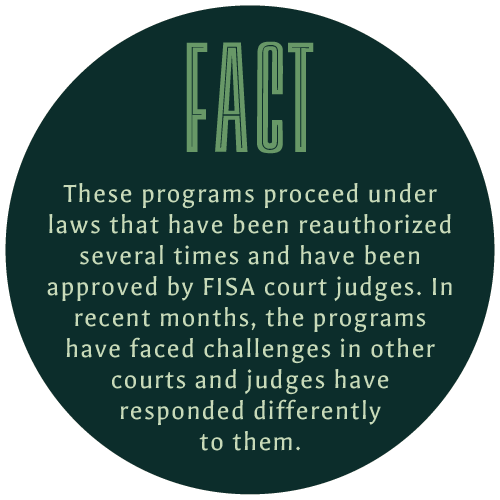
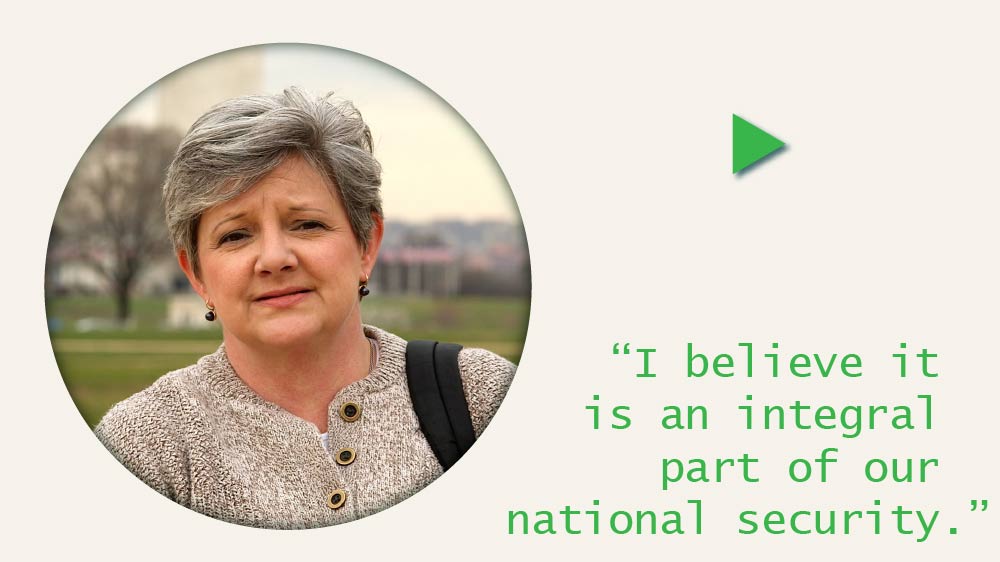
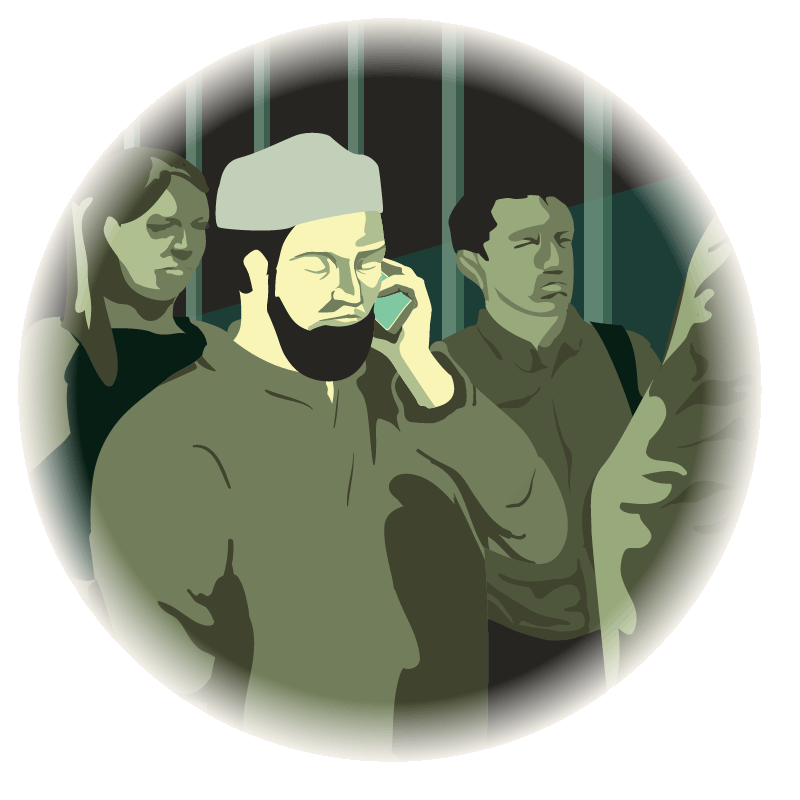
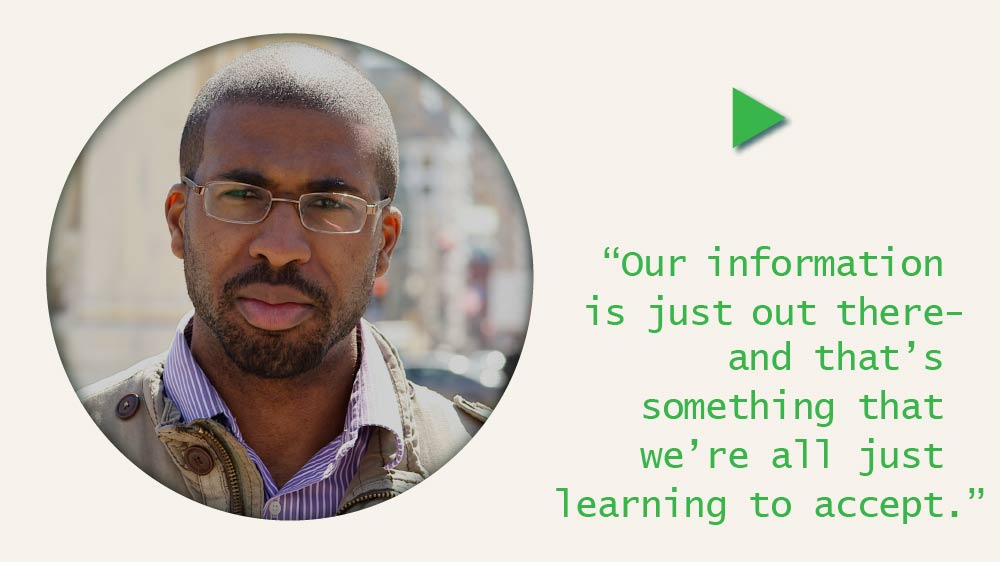
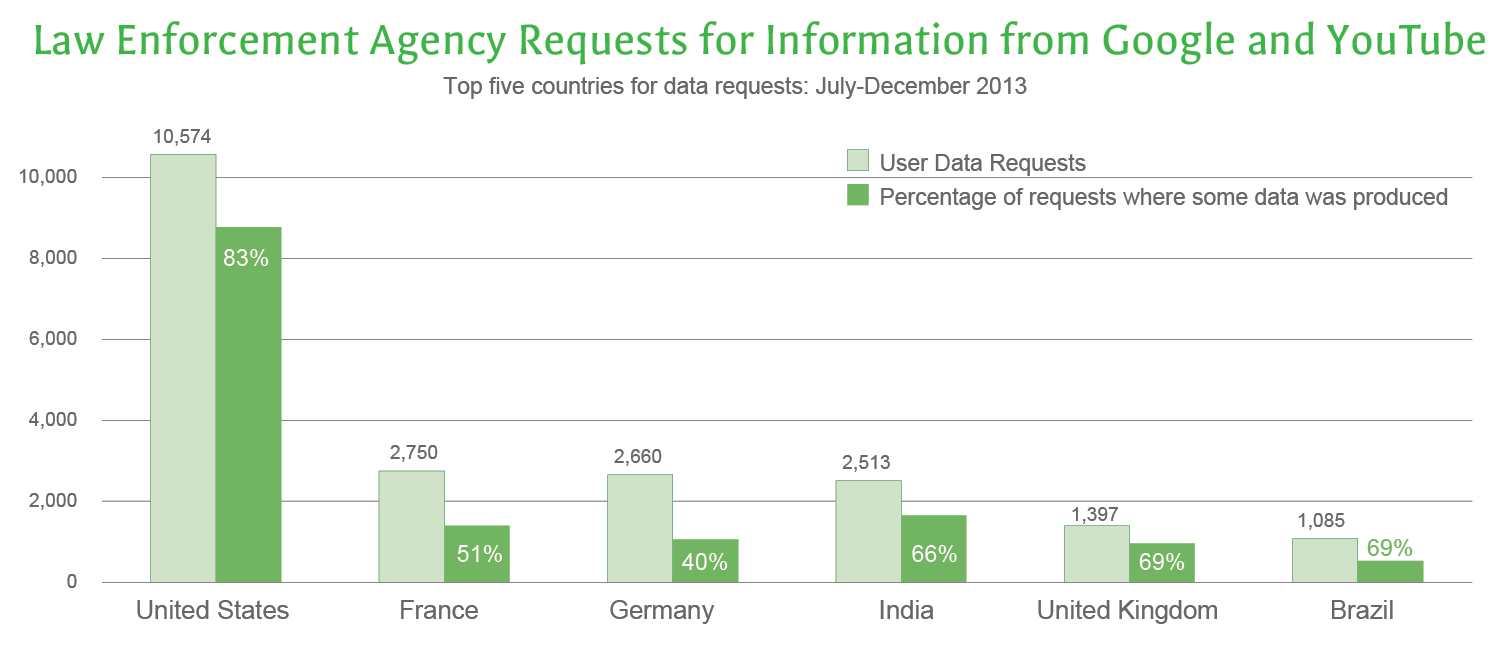
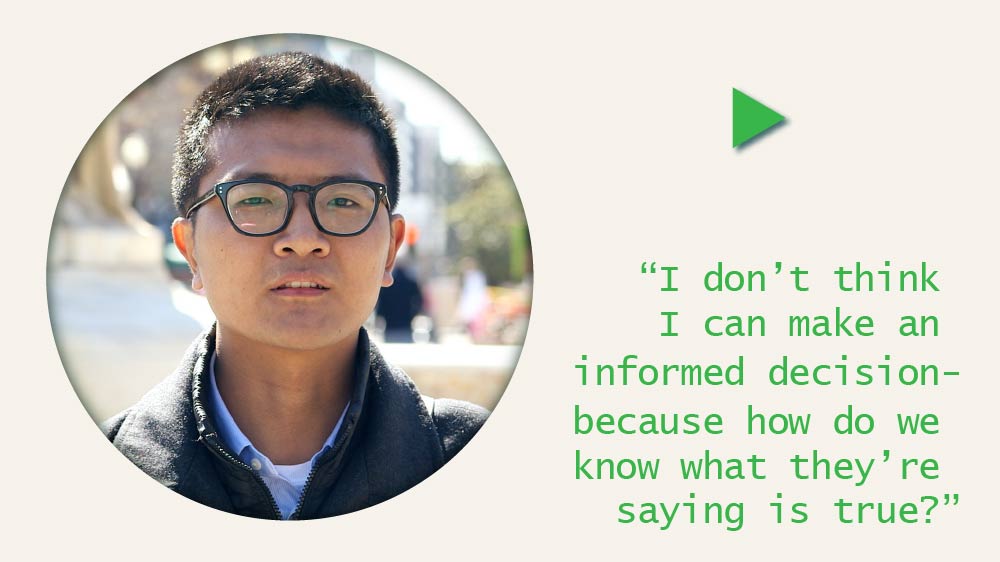

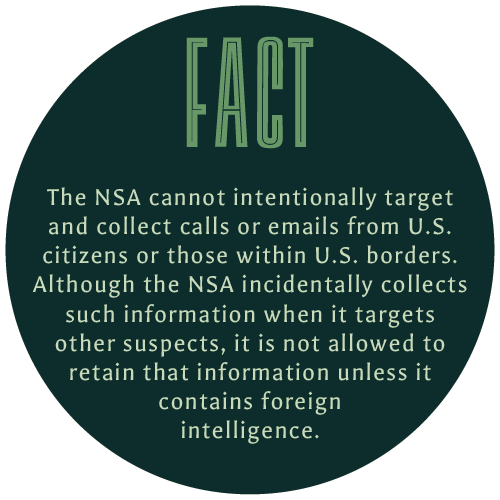
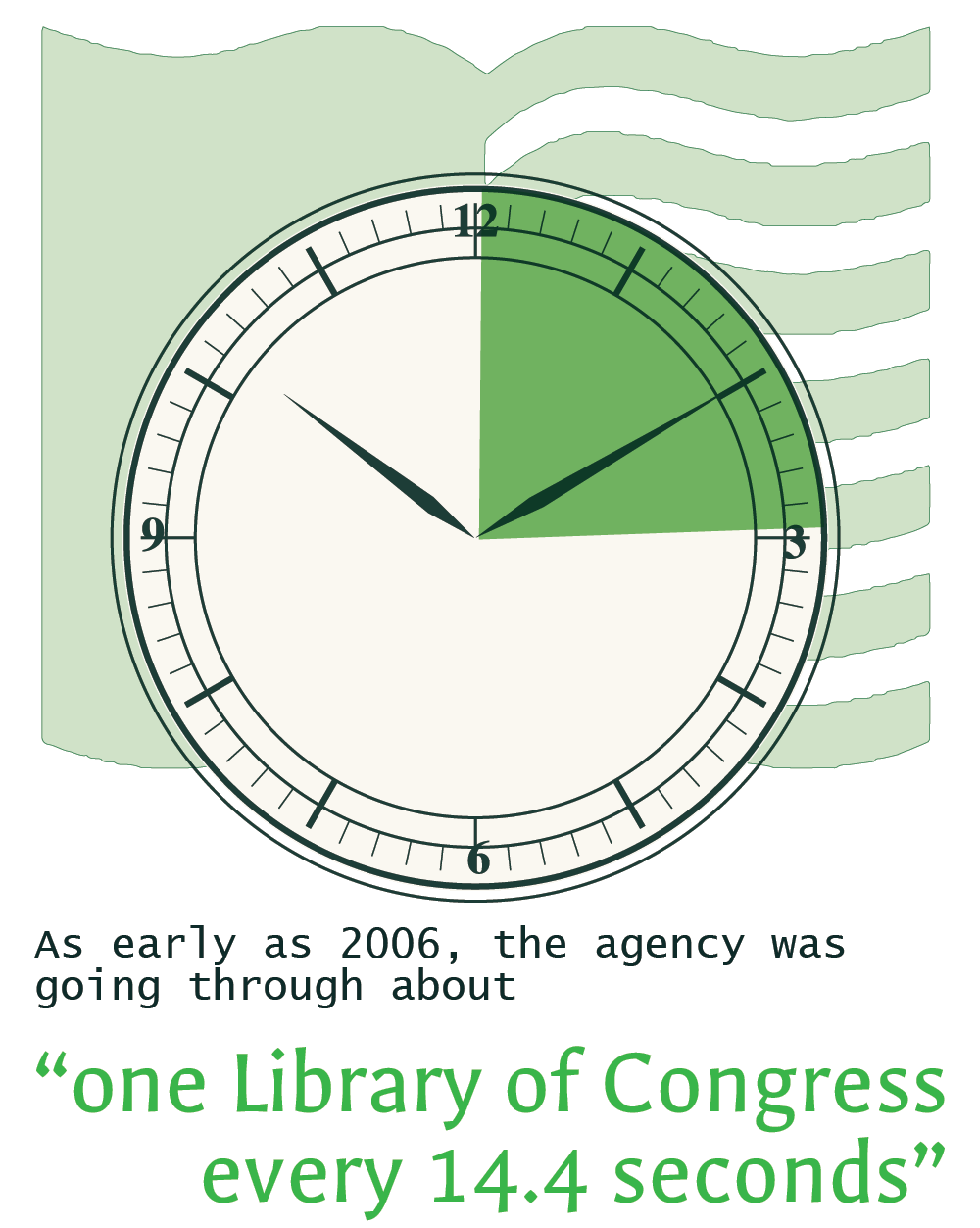
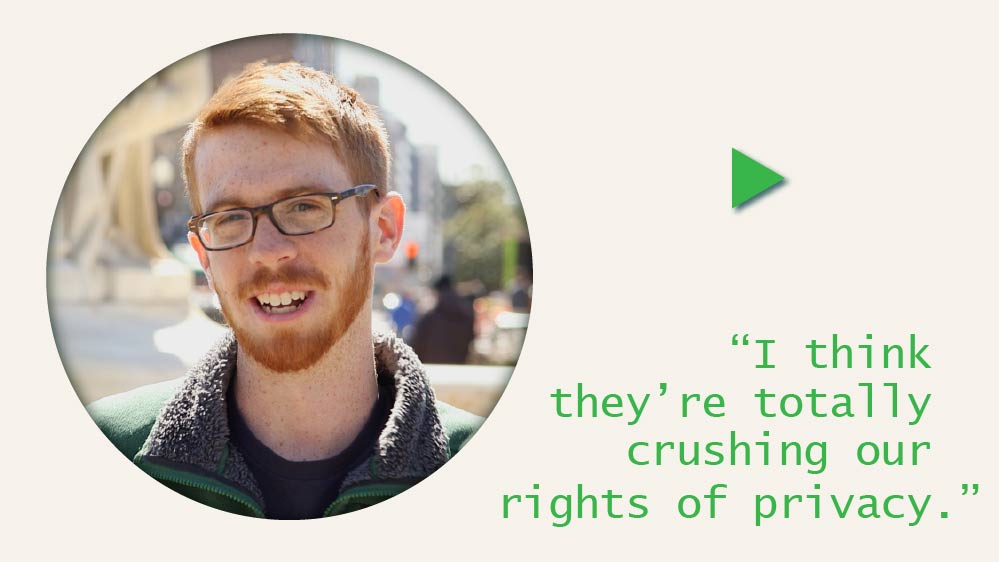
 Wyden agrees with Jaffer. Phone records, he says, can be tremendously illustrative of a person's private life: "If you know who a person called and when they called and generally where they called from, you know a tremendous amount about them" — political and religious affiliations, sexual behavior and extramarital affairs, problems with alcohol, drugs, or gambling, medical conditions, and more.
Wyden agrees with Jaffer. Phone records, he says, can be tremendously illustrative of a person's private life: "If you know who a person called and when they called and generally where they called from, you know a tremendous amount about them" — political and religious affiliations, sexual behavior and extramarital affairs, problems with alcohol, drugs, or gambling, medical conditions, and more.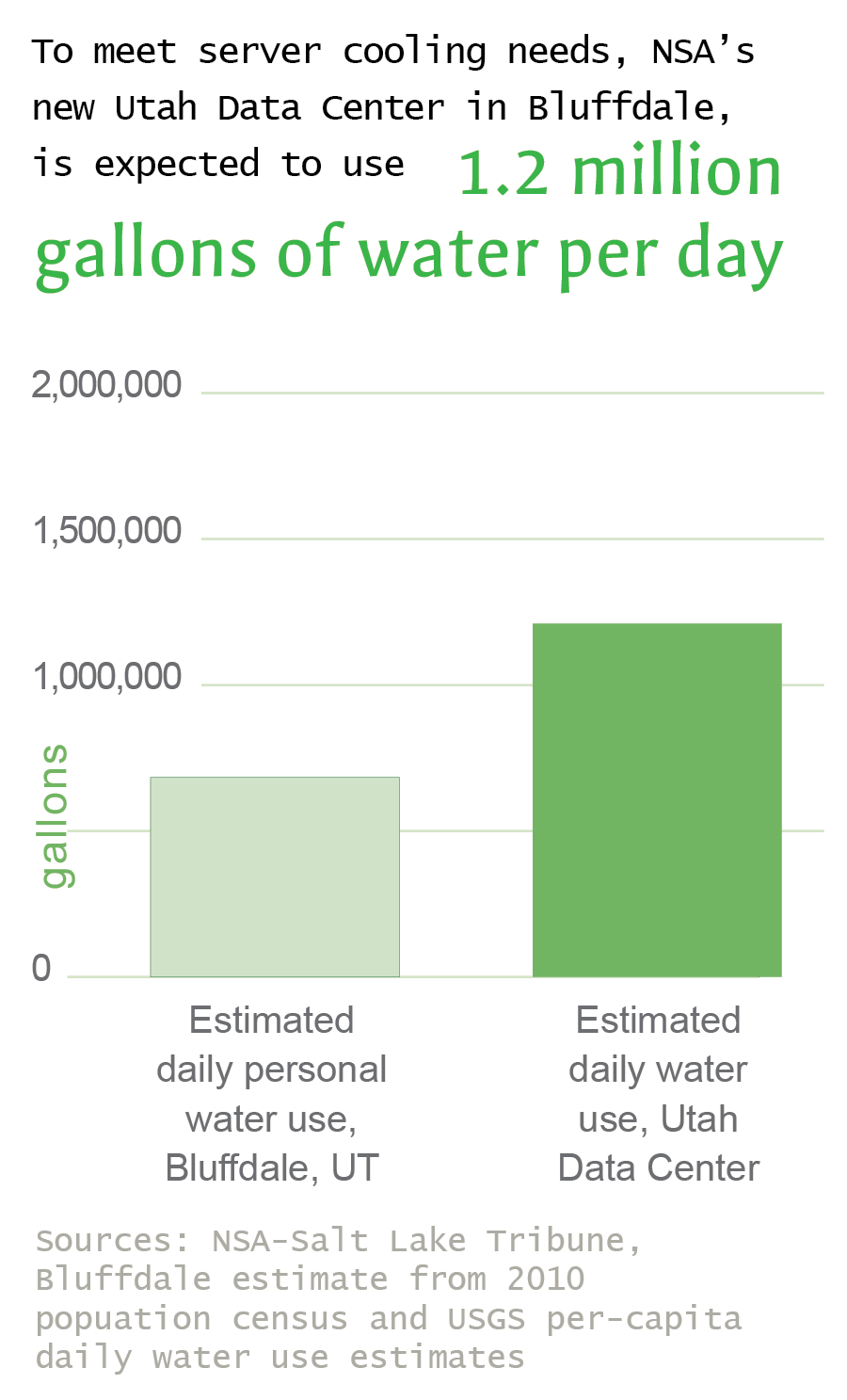

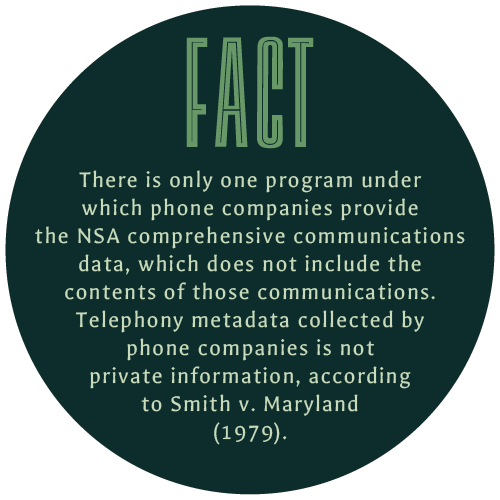



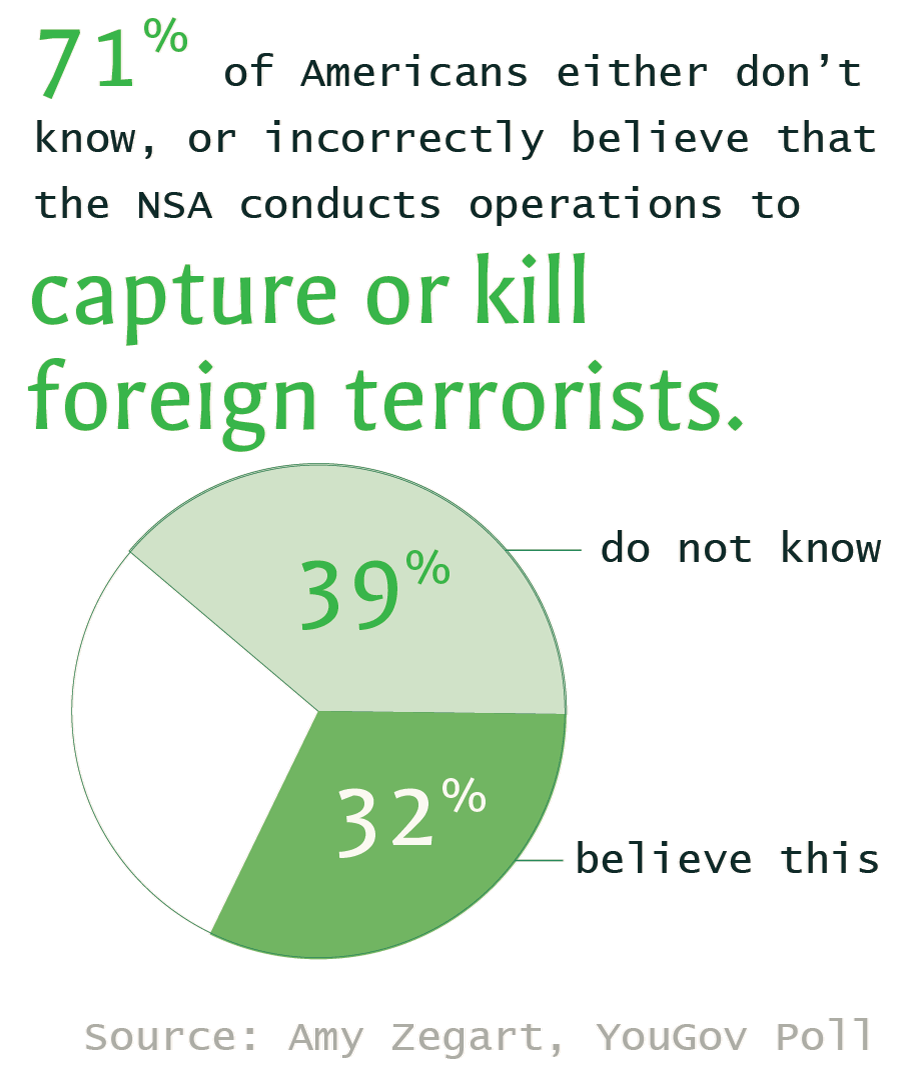

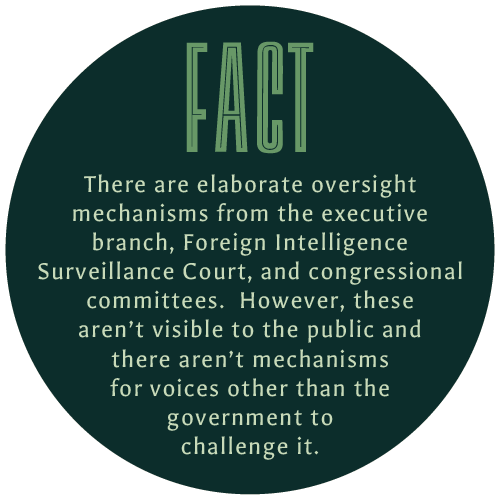

 Wyden has long since staked
out his objection to a "secret court" — "the most bizarre court
in America" he calls it — which deliberates behind closed doors
and hears only from government counsel, then issues
interpretations that are classified. "The law should always be
public," he says. "How do Americans make informed judgments
about policies if there's a big gap between the laws that are
written publicly and their secret interpretation?"
Wyden has long since staked
out his objection to a "secret court" — "the most bizarre court
in America" he calls it — which deliberates behind closed doors
and hears only from government counsel, then issues
interpretations that are classified. "The law should always be
public," he says. "How do Americans make informed judgments
about policies if there's a big gap between the laws that are
written publicly and their secret interpretation?"